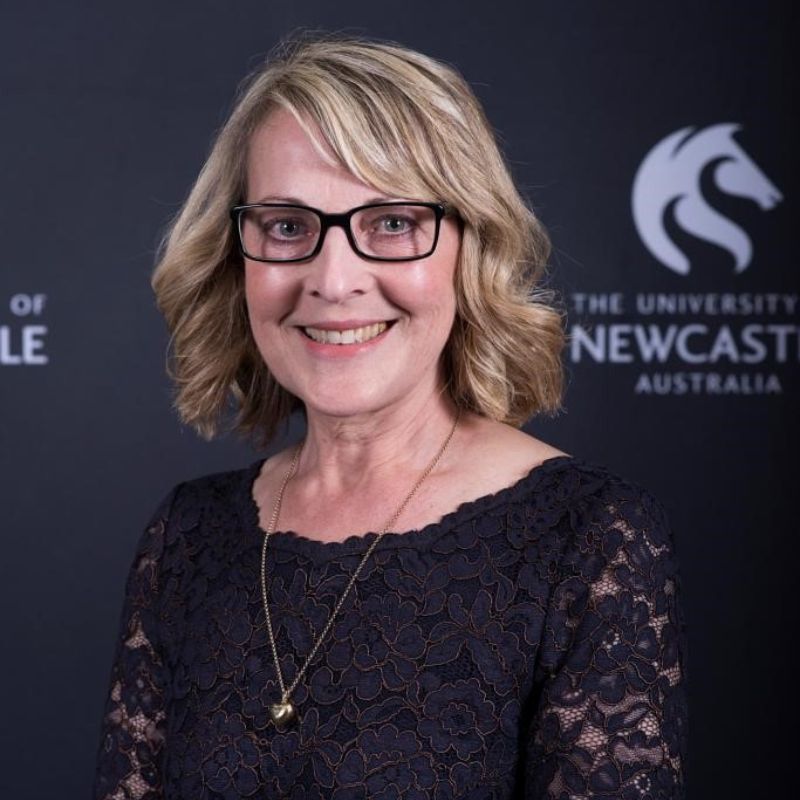
Oral health program that gives seniors a reason to smile
The University of Newcastle’s Senior Smiles program is improving the way older Australians access oral health care.
Good oral health is fundamental to our wellbeing, particularly as we age. Research shows poor oral health can be a risk factor for cardiovascular disease, diabetes, stroke and dementia. It can also impact our quality of life.
Older adults are particularly vulnerable to poor oral health due to changes in diet and increased medications. Older people also report that the cost of dental services is a barrier to achieving good oral health.
University of Newcastle Honorary Professor Janet Wallace dedicated much of her career to demonstrating the connection between oral health, wellbeing and quality of life. Through her work, she saw an opportunity to create a scalable and sustainable model of preventive care in the residential aged care environment.
Senior Smiles as a solution
Professor Wallace developed a pilot oral health student placement program with 17 residential aged care facilities on the Central Coast of NSW. This evolved into Senior Smiles – a program that provides oral health services and referral pathways to support older people and those who care for them.
Senior Smiles has four core elements:
- an oral health professional, such as an oral health therapist or dental hygienist, who works on-site in a residential aged care facility
- regular oral health risk assessments and care plans for all residents
- referral pathways to dental practitioners for more complex needs
- collaboration with aged care staff to enhance oral health skills and ensure oral health is factored into general health care.
The Senior Smiles program worked with more than 600 aged care residents across five residential health care facilities between 2017 and 2019. During that time, it provided over 1,600 oral health assessments, 1,300 oral health care plans and 380 dental treatment referrals.
The program showed that the Senior Smiles model can deliver a range of benefits to aged care residents, including improved nutrition, decreased doctor visits, decreased prescription costs, fewer hospital admissions and better quality of life.
Research impact
- An independent economic analysis of the Senior Smiles program found that every dollar spent on preventive oral health in residential aged care delivered $2.40 in benefits to the health system and an extra $3.18 in social benefits.1
- Endorsed by Australia’s peak dental and oral health professional associations, Senior Smiles is the only translational research program providing preventive oral health care in residential aged care facilities in Australia.
- Universities, aged care services and health practitioners across Australia have used the program’s resources. Other Australian universities have also adopted the Senior Smiles student placement program.
- In 2025, the program is offering a new placement opportunity for third-year oral health students at the University of Newcastle. They’ll spend three days a week at a local aged care facility learning alongside other nursing and allied health students.
- Professor Wallace was invited to give evidence to Australia’s Royal Commission into Aged Care Quality and Safety. The commission made several recommendations in its final report relating to oral health, including recommendation 38 which stated all residential aged care facilities should engage with or employ an oral health practitioner.
1.Academic Health Science Network (UK)
Last updated April 2025
More information:
Honorary Professor Janet Wallace
0405 045 499

Honorary Professor Janet Wallace
Older adults are particularly vulnerable to poor oral health due to changes in diet, increased medications and reduced ability to care for their personal hygiene needs.
Aligned with the United Nations Sustainable Development Goals
Read more research impact case studies
The University of Newcastle acknowledges the traditional custodians of the lands within our footprint areas: Awabakal, Darkinjung, Biripai, Worimi, Wonnarua, and Eora Nations. We also pay respect to the wisdom of our Elders past and present.


